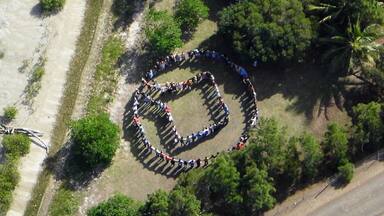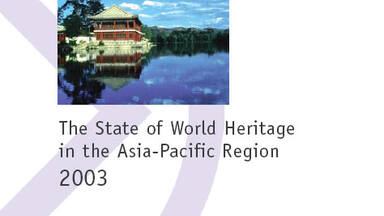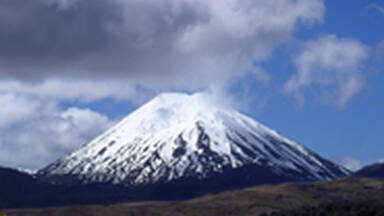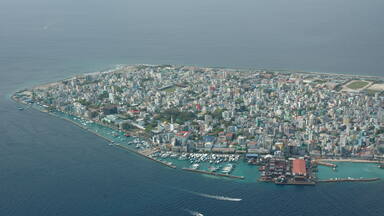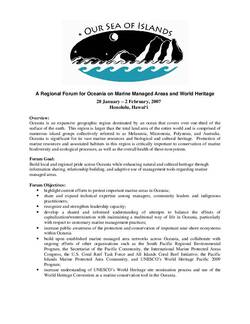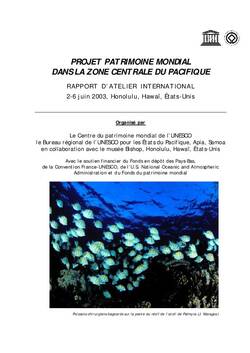The France-UNESCO Cooperation Agreement provided support to the valorisation of the Pacific Marine Heritage and support to the World Heritage Marine Programme.
The “Marine heritage project: Central pacific”, on World Heritage and preparatory assistance to the transboundary inscription in Kiribati and the Cook Islands fell within the Global Strategy for a more balanced World Heritage List as initiated by the World Heritage Centre in 1996 and aimed to improve representation of small islands and marine areas of the Pacific zone on the World Heritage List. Only a few rare marine zones of the Pacific Ocean were inscribed on the World Heritage List in the early 2000’s. In 2002, UNESCO hosted a workshop in Hanoi, Viet Nam, bringing together experts from 25 countries in order to identify potential tropical marine zones for the list. More than 40 priority zones were proposed among which UNESCO launched three pilot projects. The “World Heritage project in the central Pacific zone” recommended naming a series of geologically ancient atolls and low altitude coral islands located in the central and remote part of the Pacific Ocean (territories of the United States of America, Kiribati, Cook Islands and French Polynesia) in order to inscribe them on the World Heritage List. These atolls and islands represent essential refuges for flora and fauna (marine and terrestrial), for migratory and sedentary species that reproduce there, and essential habitats for numerous endemic species that are threatened. Furthermore, these areas are of volcanic origin and the coral reef exhibits the stages of the evolution that led to the formation of the largest biotopes on earth.
The “World Heritage project in the central Pacific zone” held a first workshop in Honolulu, Hawaii, in June 2003. Organised in partnership with the UNESCO Office in Apia and several international experts supported by the France-UNESCO Cooperation Agreement, the workshop reviewed the natural and cultural characteristics of the various proposed islands and atolls, discussed the economic and practical long-term management of remote and cross-border insular zones shared by several States Parties, agreed on a series of provisional sites and actions relevant to developing the project, and finally identified key partners in the region.
Subsequently, a second workshop was organised 5 to 9 October 2004 in Kiritimati, the capital of Kiribati with the support of the France-UNESCO Cooperation Agreement. The workshop was an opportunity to present the 1972 World Heritage Convention and the process for inscription on the World Heritage List. It also confirmed the relevance of the zones proposed by the government of Kiribati, considered new zones to include in the nomination dossier, established an action plan for the nomination proposal, identified aid and partners Kiribati would need for preparation of the nomination and preservation of the proposed sites, and discussed the general strategy and future developments of the Pacific Central project within each participating country.
In this way, the Phoenix Islands Protected Area was inscribed on the World Heritage List in 2010. It was Kiribati Island’s first property to be inscribed on the World Heritage List.
Furthermore, the France-UNESCO Cooperation Agreement with the support of the French Ministry of Ecology, provided assistance to the World Heritage Marine Programme. This programme was launched in 2005 and its mission is to establish effective conservation of existing and potential marine areas of Outstanding Universal Value. The three major goals of the programme are the effective management of World Heritage marine sites, the creation of an international network of World Heritage marine sites and of a marine World Heritage site managers network.
The France-UNESCO Cooperation Agreement provided general support to this programme in terms of substance, the identification of experts, and the organisation of site manager meetings.
More particularly, the France-UNESCO Cooperation Agreement provided support to the organisation of the “2nd Global World Heritage Marine Site Managers Conference”, held in Ajaccio from 18 to 20 October 2013 and organised by the World Heritage Centre, as well as support to the organisation of the “Special Evening Event: Celebrating the Crown Jewels of the Ocean” during the consecutive International Marine Protected Areas Congress (IMPAC3) that was held in Corsica and in Marseille, France.
In the continuity of the former meetings, and in the pursuit of the valorisation process of marine heritage and exchanges of good practices to strengthen the coordination of marine World Heritage Sites, a meeting of site managers has been organised in Townsville, Australia, at the occasion of the “2014 IUCN World Parks Congress” that took place in November 2014 in Sydney, Australia, on the theme “Parks, People Planet: Inspiring Solutions”.
- Preparatory assistance

